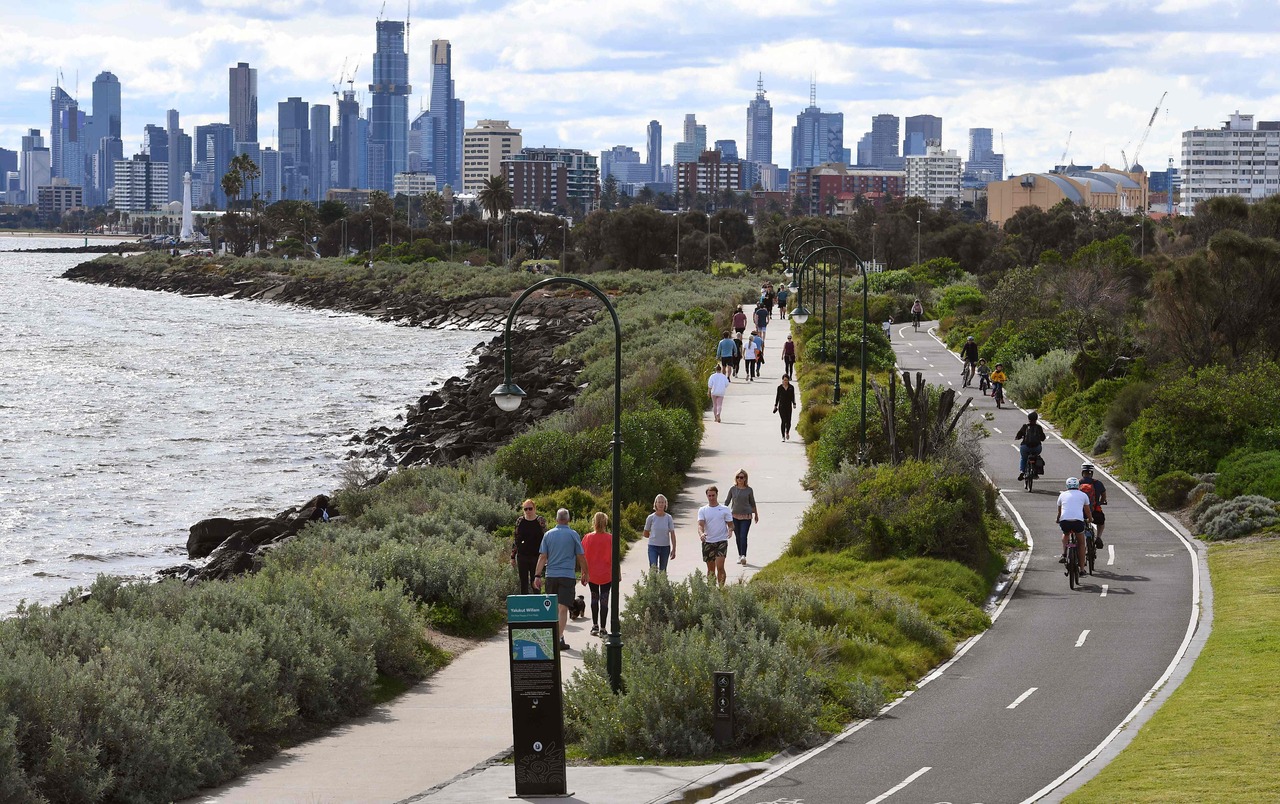Australian state of Victoria under pressure after defying Canberra over China's Belt and Road Initiative
Sign up now: Get insights on Asia's fast-moving developments

Some senior figures in the ruling Coalition said Victoria's move poses a potential security threat to Australia.
PHOTO: AFP
Follow topic:
SYDNEY - A controversial move by the Australian state of Victoria to develop closer commercial ties with China has caused an angry response from the Federal Government, which has shown increasing wariness of doing business with Beijing.
Two years ago, Victoria's Labor government signed up to China's globe-spanning Belt and Road Initiative, saying this would boost the state's economy and promote jobs.
But the Federal Government, which oversees foreign policy, has refused to sign up to the massive infrastructure-building scheme, apparently over concerns that the initiative might increase China's global influence and could potentially leave some countries indebted to it. Victoria has come under growing pressure over its involvement in the BRI, especially as tensions between Canberra and Beijing have increased since the outbreak of the Covid-19 pandemic.
The Prime Minister, Mr Scott Morrison, has condemned Victoria's move, saying it interferes with Canberra's oversight of the country's foreign policy.
"It's always been the usual practise for states to respect and recognise the role of the Federal Government in setting foreign policy," he told reporters on May 24.
Some senior figures in the ruling Coalition have gone further, saying Victoria's move poses a potential security threat to Australia.
The Home Affairs Minister, Mr Peter Dutton, recently described the BRI as "a propaganda initiative from China", claiming it could lead to foreign interference.
"Victoria needs to explain why it is really the only state in the country the has entered into this relationship," he told 2GB Radio.
Even the United States Secretary of State, Mr Mike Pompeo, weighed into the controversy, saying Victoria's move could potentially make Australian telecommunications vulnerable and undermine intelligence sharing with Australia.
"Every citizen of Australia should know that every one of those Belt and Road projects needs to be looked at incredibly closely," he told Australia's Sky News.
In Australia, the Federal Government is responsible for foreign policy, but states have their own ties with foreign nations. Some states have trade offices in other countries, for instance, and state leaders regularly make official visits abroad.
Victoria, Australia's second-most populous state, has numerous trade and investment offices around the world, including in Shanghai, Tokyo, Jakarta, Singapore, London and Seoul.
But some commentators say states lack the access to intelligence and security resources to ensure they can properly handle any potential risks from schemes such as the BRI. Victoria is not understood to have yet proceeded with any specific projects as part of the BRI.
The Premier of Victoria, Mr Daniel Andrews, insisted he accepted that foreign policy was a matter for Canberra. But he added: "As for trade policy, jobs policy? We'll always do whatever we can to get more Victorian-made products into international markets."
Trade between Australia and China has soared in recent years, but Canberra has been wary of the BRI, indicating it has concerns about the governance and the potential for countries to take on loans they cannot repay.
The Federal Government this week introduced tougher foreign investment rules which will require screening of all foreign investment in businesses deemed "sensitive" national security assets. This could include investments in communications, technology and energy businesses or in infrastructure such as ports.
The Treasurer, Mr Josh Frydenberg, said Friday the changes were necessary because "technology has been evolving and our geopolitical climate has become more complex".
"The world over, governments are seeing foreign investment being used for strategic objectives, not purely commercial ones," he told reporters.
But the laws were widely viewed as primarily designed to protect sensitive assets from coming under Chinese control. In recent years, security concerns prompted Canberra to block Chinese investment in large agricultural assets and to bar Chinese telecommunications firm Huawei from participating in the rollout of Australia's 5G network.
Mr Andrews appeared to have no objection to the new investment screening, saying the measures seemed "perfectly logical".
The furore over Victoria's involvement with the BRI may leave Australian states more cautious in future about their involvement in the nation's foreign affairs.
An expert on diplomacy and geo-economics, Mr Hervé Lemahieu, from the Lowy Institute, said Victoria's involvement in the BRI was a "propaganda win" for China, saying state leaders needed to be more alert to the implications of their dealings with other countries.
"Many will see the BRI agreement with Victoria as a sign of China's potential exploitation of differences," he told The Sydney Morning Herald.
"Australia is not the only country where China is seeking to ingratiate itself with sub-state politicians - it's happening in the United States as well."

